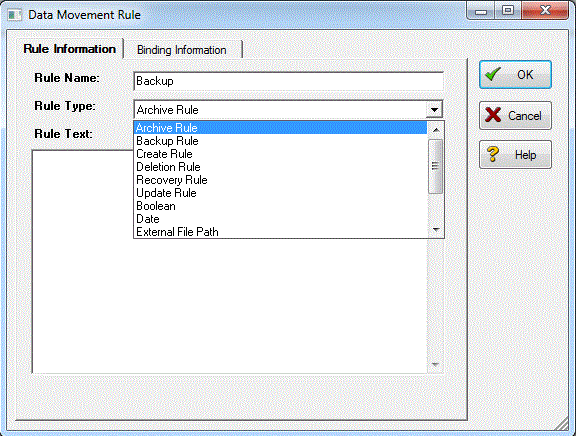Tutorials: Creating a Data Movement Rule
Go Up to Introduction
Data Movement rules describe how source and target tables and entities are related. You can relate source data to one or more tables and entities in the same model, the active diagram, or to tables imported from external systems. The rules defined here are used at the table level on the Data Lineage tab of the entity and table editors.
Create a data movement rule
- On the Data Lineage tab, right-click Data Movement Rules and choose New Data Movement Rule.
- Complete the Data Movement Rule editor as required and then click OK to exit the editor.
The following describes options that require additional explanation:
Rule Information tab
- Rule Name: Enter a name that indicates the operation and objects acted on, depending on the specifics of your binding definition.
- Rule Type: Select a generic movement rule type that best describes the data movement.
- Rule Text: Document your data movement plan here, perhaps adding instructions or contingency plans.
Binding Information tab
Select the object classes and/or specific objects to which you want to bind this attachment. You can override this setting using the Data Lineage tab of the entity or table editor.

